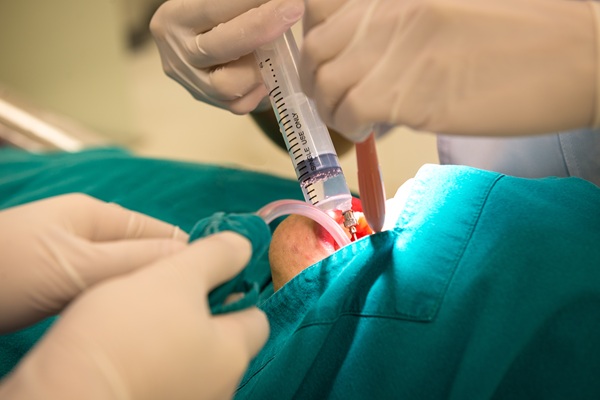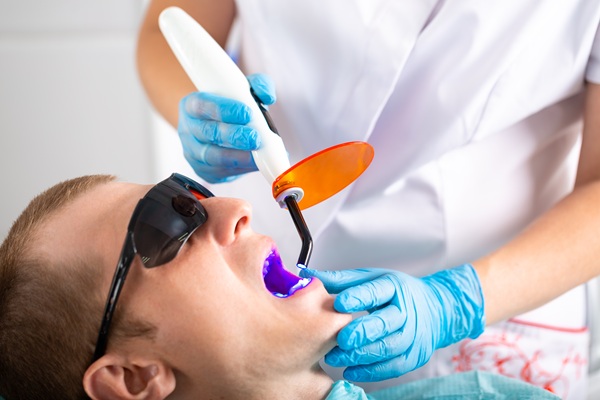The Most Common Types of Oral Surgery Procedures

Oral surgery is a branch of dentistry that diagnoses and treats conditions affecting the mouth, jaw, and face. While general dental treatments can address many dental issues, some issues require surgical intervention. Understanding the different types of oral surgery can help patients make informed decisions when they need a more advanced procedure.
1. Tooth extractions
Tooth extraction is one of the most common types of oral surgery performed in dental practices. This procedure is typically recommended when a tooth is severely damaged, decayed, or infected beyond repair. It may also be necessary when a tooth is crowding other teeth or causing alignment issues.
Wisdom teeth, or third molars, are commonly extracted, especially if impacted. Impacted wisdom teeth are trapped beneath the gum line and unable to emerge properly. Wisdom tooth extraction is particularly common in young adults, as these teeth often cause discomfort or complications if not removed.
2. Dental implants
Dental implants are another highly common oral surgery procedure that involves placing a titanium post into the jawbone to replace a missing tooth or multiple teeth. Unlike traditional dentures or bridges, dental implants provide a permanent solution that is more stable and natural-looking. The implant fuses with the bone over time, providing a strong foundation for a crown, bridge, or denture.
The procedure typically involves two stages: the first involves placing the implant itself, and the second involves attaching the restoration (crown, bridge, or denture) once the implant has integrated with the bone. Dental implants are an effective solution for individuals who have lost teeth and want to restore their smiles' functionality and aesthetics.
3. Bone grafting
In some cases, individuals may not have enough bone in the jaw to support a dental implant. This can happen due to bone loss from gum disease, tooth extraction, or long-term neglect of oral health. Bone grafting is an oral surgery procedure that helps restore bone structure by grafting bone from another part of the body (a donor or using synthetic bone material) to the jawbone.
Bone grafting aims to rebuild the jawbone to support a dental implant. After placement, the bone graft needs time to heal and integrate with the existing bone before placing an implant.
4. Corrective jaw surgery (orthognathic surgery)
Corrective jaw surgery, also known as orthognathic surgery, is a type of oral surgery that involves repositioning the upper or lower jaw to correct alignment issues. We typically recommend this procedure for patients who have significant jaw misalignment, which can lead to difficulty chewing, speaking, or breathing.
Orthognathic surgery can also correct congenital conditions such as cleft palate and address jaw abnormalities caused by trauma or injury. This surgery aims to improve function and appearance, ensuring the jaws are properly aligned to support healthy oral function.
5. Frenectomy
A frenectomy is a relatively simple oral surgery procedure that involves removing or modifying the frenulum, a small fold of tissue that connects the lip or tongue to the gums. Frenectomies are commonly performed to address issues such as tongue-tie (ankyloglossia), which occurs when the frenulum is too tight, restricting the movement of the tongue. Patients can determine if this procedure is necessary during a consultation and examination.
6. Temporomandibular joint (TMJ) surgery
Temporomandibular joint (TMJ) surgery is an oral procedure to correct problems with the jaw joint, which connects the jaw to the skull. TMJ disorders can cause pain, clicking, or difficulty moving the jaw. When conservative treatments, such as physical therapy or medication, do not provide relief, surgery may be necessary.
7. Treatment of oral cancer
Oral cancer can develop in the mouth, tongue, gums, or other parts of the oral cavity. When diagnosed, oral surgery is often required to remove cancerous tissue and, in some cases, surrounding areas to ensure the cancer does not spread. Depending on the severity of the cancer, reconstructive surgery may be necessary to restore the appearance and function of the affected area.
Get treated today
Oral surgery encompasses a wide range of procedures that address both functional and aesthetic issues related to the mouth, jaw, and face. From tooth extractions to complex surgeries like corrective jaw or oral cancer surgeries, these procedures play an essential role in restoring health and improving quality of life. Regular consultations with a dentist can ensure that any necessary surgeries are identified early and addressed with the most appropriate treatment options. For more information or to schedule a consultation, call or visit Rim Dental.
To schedule a consultation, request an appointment on our website at https://rimfd.com or call Rim Dental at (210) 693-1939 for an appointment in our San Antonio office.
Check out what others are saying about our dental services on Yelp: Oral Surgery in San Antonio, TX.
Related Posts
Dental implants are often used to replace individual teeth but can also offer multiple teeth replacement options. Such options include cantilever bridges, implant-supported bridges and implant-supported partials.Depending upon the condition of the person's gums and jawbone, a single implant can sometimes be placed to support two adjacent teeth. More commonly, multiple implants are used to…
Dental patients who are planning a visit to an implant dentist may be unfamiliar with the details regarding implants. It is crucial to learn as much information as possible before scheduling an appointment for this surgical procedure.A dental implant is a common permanent tooth replacement option that can be highly beneficial to a patient’s health…
Having missing teeth can make normal tasks such as eating or speaking difficult, but there are several tooth replacement options available to allow you to restore function and improve the appearance of the mouth. Learn more about what alternatives are available to patients and the potential benefits of each method.Depending on the situation and how…
Laser dentistry has revolutionized modern dental care, offering patients a more comfortable and efficient experience than traditional methods. Laser dentistry uses focused light energy, allowing dentists to perform various procedures with increased precision, reduced discomfort, and faster healing times. As this technology advances, it becomes an increasingly popular choice for routine treatments and more complex…


